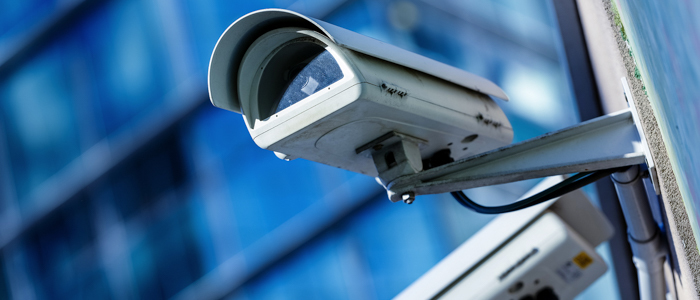Choosing a Security System: Is Video the Right Option for Your Small Business?

This article was updated on September 18, 2018.
To help protect your products and your customers' safety, it's often a good idea to consider installing a surveillance system right away. Though choosing a security system can be somewhat overwhelming, it's important to keep all the potential benefits in mind.
After all, a video surveillance system can:
- Serve as a deterrent to break-ins, particularly when cameras are visible on the exterior of your place of business
- Serve as a deterrent to shoplifting or other crimes when positioned inside
- Enable you to monitor valuable merchandise that goes unattended for extended periods
- Help to resolve disagreements between employees or between an employee and a customer
- Generate visual evidence if and when a crime does occur
Here are some tips on how to go about choosing a security system that's best for you:
Make Sure That the Equipment Fulfills Your Space Requirements
If you rent or lease your business space, it might be better to install video surveillance cameras that don't permanently inhibit movement or otherwise affect the building's structure.
Determine the Number of Cameras Your Business Needs
Ask yourself: Is surveillance necessary in every part of the business, or can it be restricted to areas where customers are present or inventory is stored? You should also think about whether it is necessary for any externally placed cameras to be weather-resistant or employ night vision features.
Assess the Benefits of Mobile Features and Remote Access
Several security systems are available with mobile apps, while others permit business owners to link their devices to the system and receive ongoing updates to their accounts. Remote access is accessible on virtually any type of electronic device to help you easily monitor the feed on your phone or tablet, or receive text updates on a regular schedule.
Choose Between Analog Video and Digital IP Video
An analog security camera transmits images through an analog signal to a digital video recorder (DVR), a relatively simple and affordable method of business surveillance. It's important to note that this method degrades the overall quality of the analog recordings. Unfortunately, this can make law enforcement's task of identifying potential criminals more challenging.
Increasingly, small businesses are opting for digital internet protocol (IP) video, which employs numbers, rather than signal strength, to create images. IP cameras are connected via the internet and have the added benefit of being able to store immense amounts of data in the cloud. IP digital cameras also have higher resolution, which translates into clearer images and an enhanced motion-capture capacity.
A quality video surveillance system may be ideal for small businesses that can't afford the expense of a full-time security staff. This type of surveillance may act as a crime deterrent. On a less ominous note, it may also spur your employees to improve their customer service skills, as they'll know they're being recorded during every transaction with the public. Be sure to check with your legal counsel on any laws that may apply to your business regarding video surveillance.



